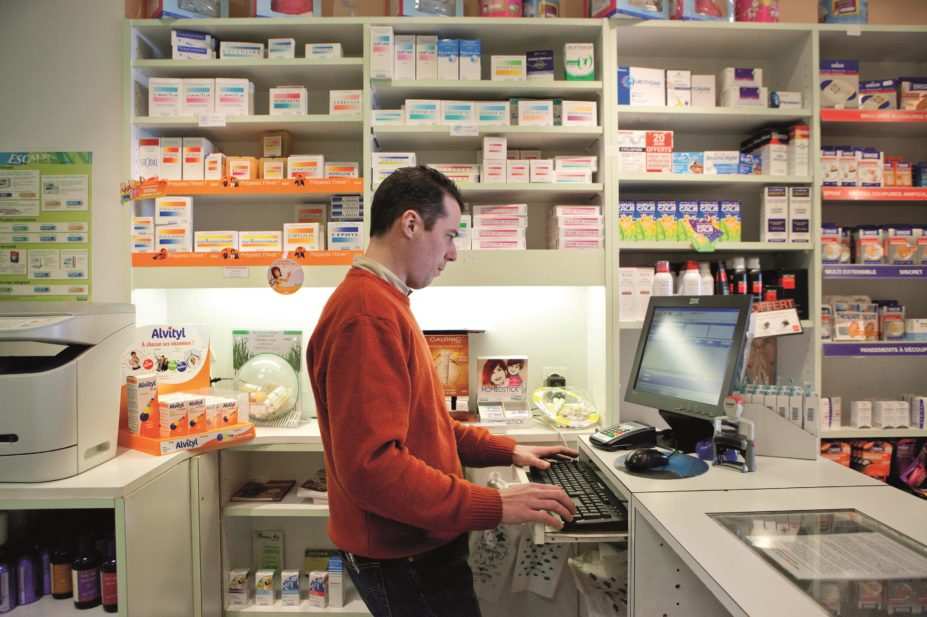
Shutterstock.com
Giving pharmacists the ability to read and add comments to patients’ full health records would improve safety and quality of care, says the Royal Pharmaceutical Society (RPS) in a position statement launched on 30 September 2015.
Full records access would allow pharmacists to make more informed clinical decisions and improve the sharing of information with other health professionals, it said.

Source: Royal Pharmaceutical Society
Sandra Gidley, chair of the RPS English Pharmacy Board, says: “It is vital for patient safety that informed decision making is at the centre of all healthcare interventions.”
“It is vital for patient safety that informed decision making is at the centre of all healthcare interventions,” says Sandra Gidley, chair of the RPS English Pharmacy Board. “Full, patient-led access to health records would greatly enhance the ability of pharmacists to add information as well as to read appropriate information regarding a patient’s care.”
The RPS would like to see read and write access rights available to pharmacists in all settings, including hospital and community pharmacy.
It has called for a phased roll-out starting with universal access to summary information records and culminating in access to a single health record that brings together all information about a patient’s care, to which a pharmacist could also add information.
Pharmacists would access patient records only when there is a clinical need and with the consent of the patient, underpinned by “robust” governance, the RPS insists. It will campaign for full records access in all three nations in Great Britain.
Nigel Mathers, honorary secretary of the Royal College of General Practitioners (RCGP), says community pharmacy access to medical records would be good for patients in principle as it would encourage more joined-up working in health and social care, strengthen the pharmacist-patient relationship and help improve medicines safety advice.
“It will be imperative that individual patient’s consent is given before giving pharmacists access to their records – and patients will need to be assured that as healthcare professionals, pharmacists are bound by the same confidentiality rules as GPs,” he says. “Nevertheless, any access to medical records would need sufficient safeguards to ensure that the information is used properly and only in the best interests of patients.”
At present, most community pharmacists in Great Britain have no access to patients’ full GP or hospital records, though an increasing number are able to view limited information summaries.
From autumn 2015, community pharmacists in England have been promised access to the summary care record (SCR), which contains information about a patient such as a history of prescribed medicines, adverse reactions and allergies. Pilots suggest this can help to avoid unnecessary GP visits and medicines errors. Most hospital pharmacies can already access these records.
In Scotland, direct access to the emergency care summary is limited to some hospital and NHS 24 services, and community pharmacists are required to call NHS 24 to obtain this information. Only a few pilots have extended this access to pharmacists in community settings. It is a similar picture in Wales, where the individual health record is typically only accessible by GP out-of-hours services and hospitals for unscheduled care.
The RPS says read and write access to patients’ full health records would help pharmacists to improve medicines reconciliation, reduce medication errors and avoid potential side effects and interactions. It would also boost community pharmacies’ ability to offer urgent care services and respond to emergency requests for medicines.
Data collected from services such as the new medicine service in England, discharge medicines review service in Wales and the chronic medication service in Scotland is not automatically shared with GP practices. Neither is a record of medicines supplied under a patient group direction or a pharmacist independent prescriber, via home care or a clinical trial.
GPs may similarly be unaware when pharmacists are providing public health services, such as emergency hormonal contraception or smoking cessation, to patients on their list.
Recording these interventions would inform health professionals of their patients’ interactions with other parts of the health service, the RPS says.
Paul Harris, acting vice chair of the Welsh Pharmacy Board, says: “Access to patient information will allow the pharmacy profession to play an even greater role in the provision of safe and effective health care in Wales.”
John McAnaw, chair of the Scottish Pharmacy Board, says “the time has come” for pharmacists to have direct access to the patient record.


